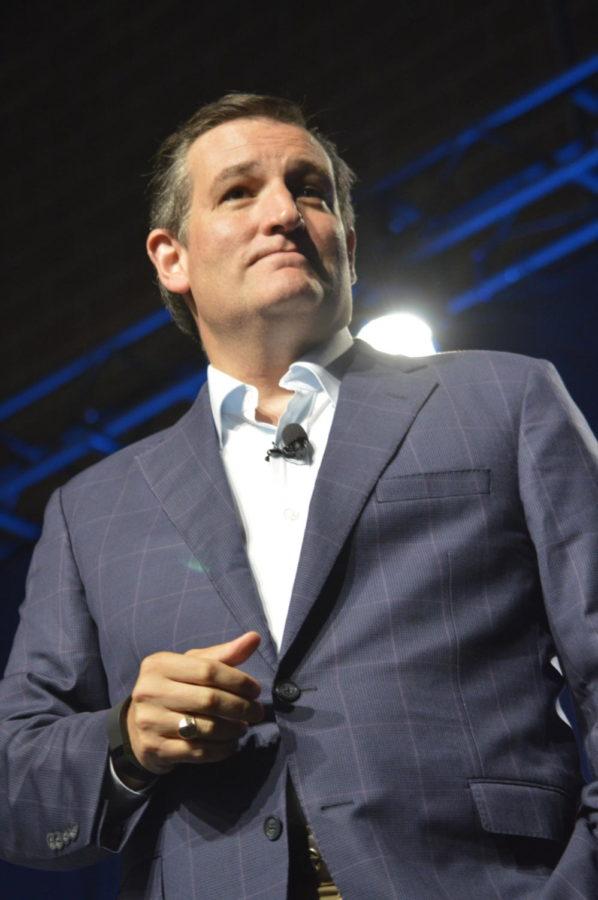- News
- News / Politics And Administration
- News / Politics And Administration / State
- Politics
- Politics / Caucuses
GOP race: What to expect less than a month until the Iowa Caucus
January 10, 2016
History says January can change everything during the Iowa Caucus — just ask Barack Obama from 2008 and Rick Santorum from 2012, who both took the lead in the final month and won after months and months of being behind.
While Santorum did not end up being the GOP nominee in 2012, Obama, of course, went on to become president as a first-term senator by beating Hillary Clinton and John Edwards in the state.
But this year, political pundits and history have been wrong over and over, with political outsider Donald Trump leading almost every poll since he announced his candidacy this past summer.
While some may call Trump’s proposals and rhetoric outlandish, his appeal to the working class and those fed up with “politics as usual” continues to put him atop the Republican race for the White House.
In Iowa, expect a closer race, said Mack Shelley, university professor of political science at Iowa State, and Tim Hagle, professor of political science at the University of Iowa. U.S. Sen. Ted Cruz, R-Texas, has tapped into Iowa’s large evangelical base with a few weeks left before Iowa votes.
“Cruz seems to be leading in Iowa in polls, about 4 percent in an average from Real Clear Politics,” Hagle said this week while discussing the state of the race. “Its not like Cruz has a huge lead, but the difference is that Cruz has a stronger ground game … and that kind of stuff is important because there are a lot of people who [are confused] about the caucus [process].”
Hagle mentioned a huge number of volunteers in the state helping to elect Cruz. The campaign has actually rented old college dormitories, now dubbed “Cruz Camp,” in Des Moines to house hundreds of volunteers — up to as many as 700 before Caucus Night rolls around on Feb. 1, the U.S. News and World Report reported Friday.
“Iowa is all about organization,” Shelley said. “Cruz is definitely involved in the organizational side of things and he seems to have gotten the memo on that is how you win in Iowa — it’s kind of the way Huckabee won in 2008 and Santorum won in 2012.”
As for Trump, his campaign events in the state, which included stops in Ottumwa and Clear Lake on Saturday, still draw hundreds, if not thousands, of supporters, but the important ground game operation may be lagging.
“[The ground game] is where the Trump campaign has a weakness,” Hagle said. “They may be trying to increase their ground game, but they seem to be significantly lagging behind and they’ve got newer voters, people who are not registered, and if they haven’t caucused before, they’re less likely to caucus now.”
Trump is also planning a rally in Cedar Falls on Tuesday at The University of Northern Iowa.
“Trump doesn’t seem to have much [ground game] invested in Iowa so far,” Shelley said. “He really hasn’t been playing the game that way, instead he’s been relying on free broadcast media to get his name and ideas across, plus he’s been known for decades.”
Behind Cruz and Trump?
The Real Clear Politics average has Cruz at 30.8 percent and Trump at 26.8 – the closest behind being Marco Rubio, R-Fla. at 12 percent, Ben Carson at 9 percent and Jeb Bush at 5.2 percent. The rest of the field — including past Iowa winners Santorum and Huckabee — don’t break 3 percent.
At this point, it’s clear that Trump and Cruz will probably be in the top two spots in Iowa, Shelley said, but past Iowa, there are other names to watch.
“[Chris] Christie is doing much better in New Hampshire — although still way behind Trump — than he is in Iowa,” Shelley said. “But he could do reasonably well in Iowa. He and Rubio might be duking it out farther down the road for the semi-official anointment of the establishment.”
Other establishment candidates who may have done well in other cycles continue to struggle such as Bush and Kasich, who are both focusing on New Hampshire. Shelley also mentioned U.S. Sen. Rand Paul, R-Ky., whose Dad, former Texas Rep. Ron Paul, came in third in Iowa. He has been reaching out to students and libertarians, but his appeal does not seem to be catching on like his Dad did.
While Iowa may be first and will jumpstart the conversation as the first votes are cast, it will be important to watch the early states.
New Hampshire will host its primary Feb. 9, with Democrats caucusing in Nevada, and Republicans voting in South Carolina on Feb. 20. Republicans will caucus in Nevada on Feb. 23, while Democrats will vote in South Carolina on Feb. 27. Then watch for Super Tuesday, when more than a dozen states will vote March 1, and the nominee on each side may be clear.

















